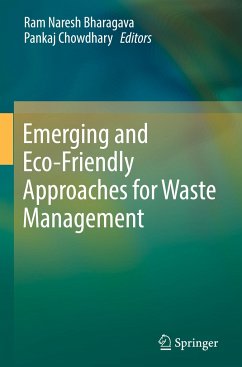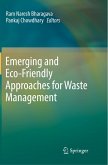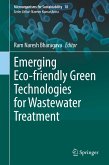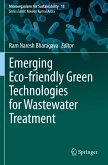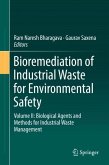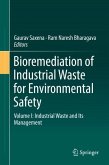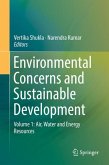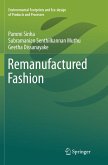Rapid industrialization is a serious concern in the context of a healthy environment. With the growth in the number of industries, the waste generated is also growing exponentially. The various chemical processes operating in the manufacturing industry generate a large number of by-products, which are largely harmful and toxic pollutants and are generally discharged into the natural water bodies. Once the pollutants enter the environment, they are taken up by different life forms, and because of bio-magnification, they affect the entire food chain and have severe adverse effects on all life forms, including on human health. Although, various physico-chemical and biological approaches are available for the removal of toxic pollutants, unfortunately these are often ineffective and traditional clean up practices are inefficient. Biological approaches utilizing microorganisms (bacterial/fungi/algae), green plants or their enzymes to degrade or detoxify environmental pollutants such as endocrine disruptors, toxic metals, pesticides, dyes, petroleum hydrocarbons and phenolic compounds, offer eco- friendly approaches. Such eco-friendly approaches are often more effective than traditional practices, and are safe for both industry workers as well as environment.
This book provides a comprehensive overview of various toxic environmental pollutants from avariety natural and anthropogenic sources, their toxicological effects on the environment, humans, animals and plants as well as their biodegradation and bioremediation using emerging and eco-friendly approaches (e.g. Anammox technology, advanced oxidation processes, membrane bioreactors, membrane processes, GMOs), microbial degradation (e.g. bacteria, fungi, algae), phytoremediation, biotechnology and nanobiotechnology. Offering fundamental and advanced information on environmental problems, challenges and bioremediation approaches used for the remediation of contaminated sites, it is a valuable resource for students, scientists and researchers engaged in microbiology, biotechnology and environmental sciences.
This book provides a comprehensive overview of various toxic environmental pollutants from avariety natural and anthropogenic sources, their toxicological effects on the environment, humans, animals and plants as well as their biodegradation and bioremediation using emerging and eco-friendly approaches (e.g. Anammox technology, advanced oxidation processes, membrane bioreactors, membrane processes, GMOs), microbial degradation (e.g. bacteria, fungi, algae), phytoremediation, biotechnology and nanobiotechnology. Offering fundamental and advanced information on environmental problems, challenges and bioremediation approaches used for the remediation of contaminated sites, it is a valuable resource for students, scientists and researchers engaged in microbiology, biotechnology and environmental sciences.

